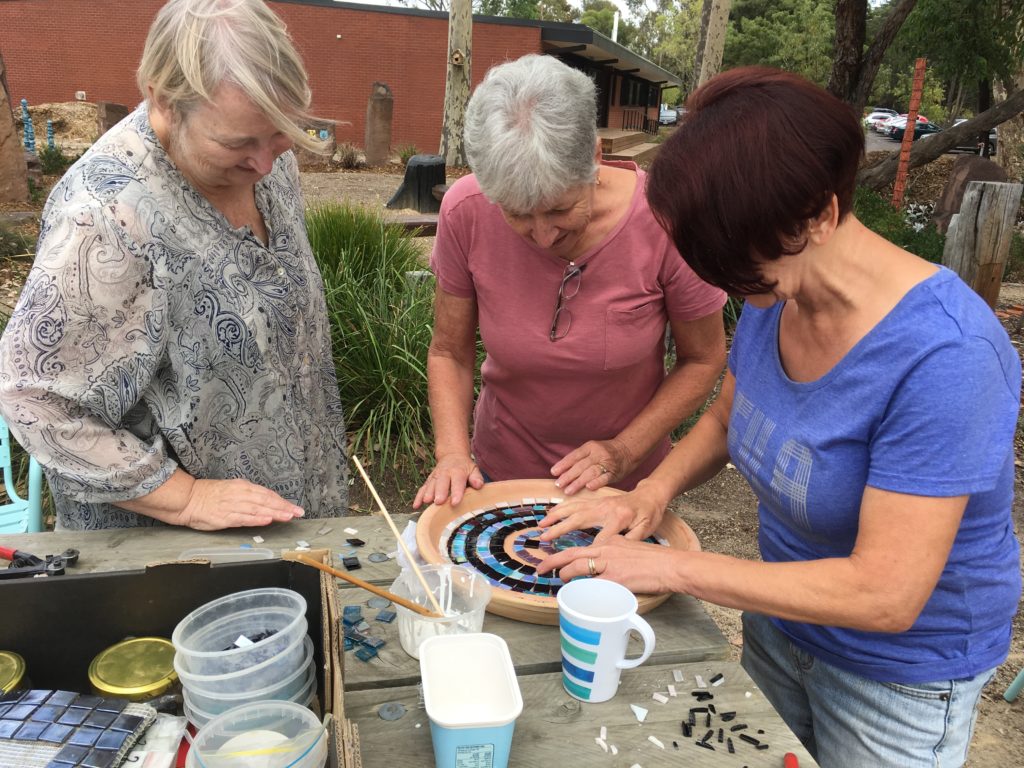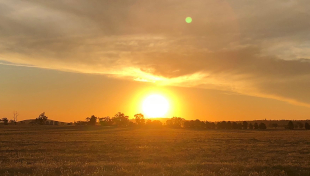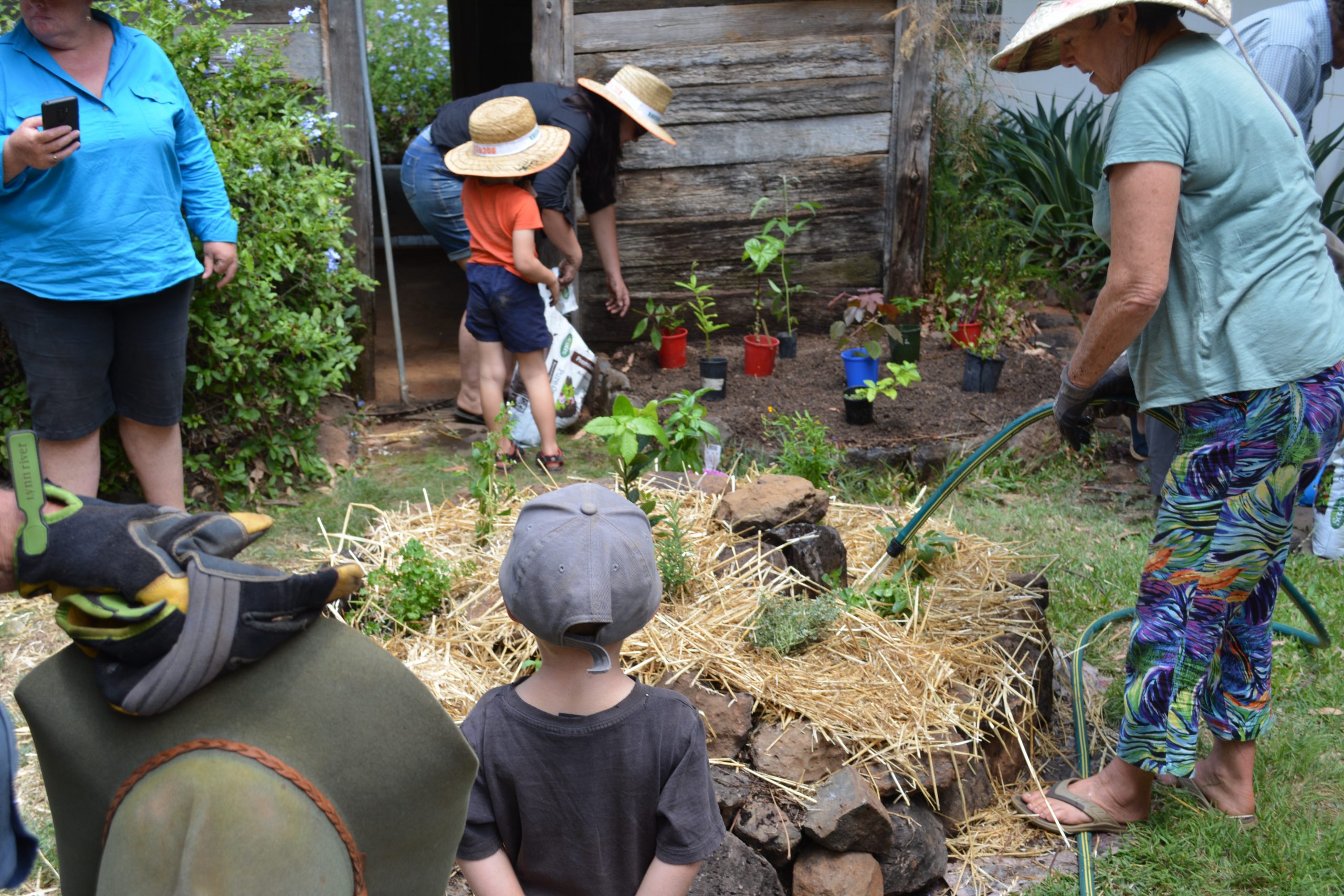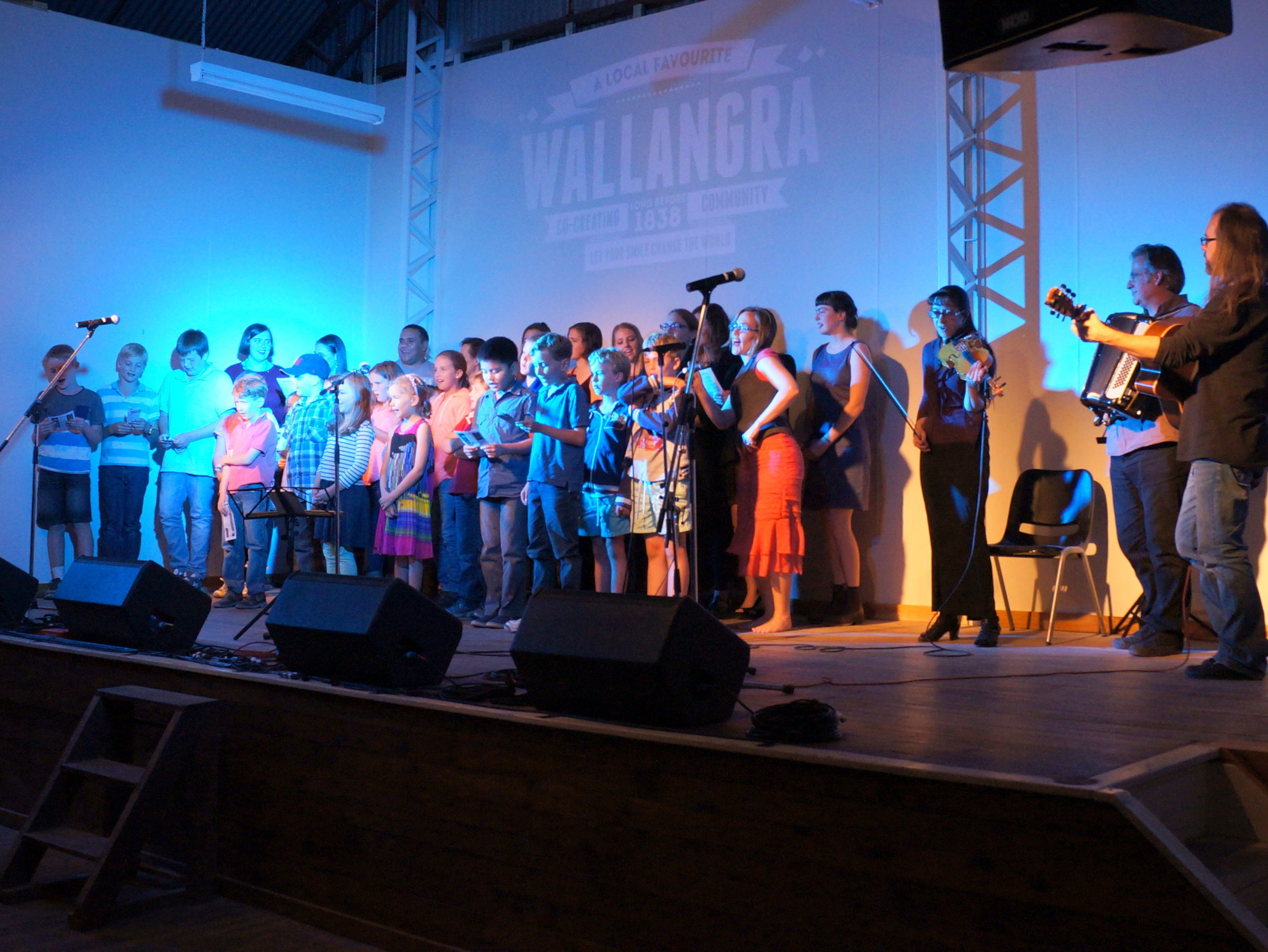Foundation for Rural & Regional Renewal (FRRR)
Black Saturday funding available for community-led initiatives
Twelve years on from the devastating 2009 Victorian bushfires, FRRR is offering another round of funding to support impacted communities as they continue to rebuild, reconnect and recover.

Supported by the Victorian Bushfire Appeal Fund (VBAF), the funding is available through FRRR’s Grants for Resilience & Wellness (GR&W) program and the Grants for Resilience & Wellness Kinglake Ranges (GR&W Kinglake) program. The grants of up to $20,000 will support not-for-profits and community-based organisations to lead projects that aid recovery and build community resilience.
The GR&W and GR&W Kinglake Ranges programs fund initiatives that:
- Improve mental health and wellbeing of communities and individuals;
- Enhance wellbeing and resilience of pre-school, primary and secondary school-aged children and young people;
- Strengthen community connections, sense of place and community identity; and
- Increase the community’s ability to prepare for future disasters.
To date, FRRR has awarded more than $4.5 million in grants to local groups, thanks to VBAF funding, which comes from the generous contributions by the general public following the Black Saturday bushfires in 2009. Through this round of funding there is a total of $360,000 available for GR&W grants and a total of more than $700,000 available for GR&W Kinglake projects.
Nina O’Brien, FRRR’s Disaster Resilience and Recovery Lead, said that the impact of COVID-19 has increased the need to support recovering communities to reconnect socially and continue to enhance their wellbeing.
“Despite the restrictions that the pandemic has put on people coming together, local groups report services and activities that enhance wellness and resilience are still well attended. One program funded twice previously by FRRR, the Be Well in the Ranges program, has been fully booked out, and the Yinnar Memorial Hall exercise group continues to attract 30-40 participants each week,” Ms O’Brien said.
“The GR&W programs provide flexible support to respond to issues as they emerge. More than a decade since the fires, communities are focusing on building resilience for the future,” Ms O’Brien explained.
Applications for both GR&W and GR&W Kinglake close at 5pm AEDT, Wednesday 21 April 2021.
Potential applicants should visit the GR&W and GR&W Kinglake webpages and review the guidelines before applying.
Networks to Build Drought Resilience and Drought Resilience Leaders
FRRR will soon be providing increased support into remote, rural and regional communities to prepare for the impacts of drought, after being selected by the Australian Government to deliver its Networks to Build Drought Resilience program. FRRR is also part of a consortium delivering the Drought Resilience Leaders program.
Funded through the Australian Government’s $5 billion Future Drought Fund, both programs will help remote, rural and regional people access the tools, skills and support to build and foster leader networks, and to develop and roll out drought resilience initiatives in their communities.

The Networks to Build Drought Resilience (NBDR) program will help people in agricultural communities to develop skills, participate in risk management planning, and foster projects that encourage connectedness and improve wellbeing. It will also support small-scale infrastructure projects to make community facilities drought resilient to increase overall wellbeing and reduce social isolation.
Natalie Egleton, CEO of FRRR, said that the Networks to Build Drought Resilience program will support future-focussed initiatives led by local community groups and network organisations that play such a vital role in local and regional resilience
“Networks and community leadership are the backbone of strong, vibrant communities and are essential to ensuring future preparedness for drought and the associated social, economic, environmental impacts that can be so devastating for remote, rural, and regional communities.
“This is an exciting opportunity for building drought resilience from the ground up and we look forward to supporting the fantastic ideas and solutions that we know are ready to go across the country,” Ms Egleton said.
Through the Drought Resilience Leaders (DRL) program rural leaders will be able to access training and support that will help them to develop and undertake a project to build drought resilience in their communities. Partnering with the Australian Rural Leadership Foundation (ARLF) and the Rural Economies Centre of Excellence (RECoE), FRRR will manage a grants stream that will allow leadership program participants and their communities to activate their community-strengthening ideas.
Ms Egleton said that this program means more opportunities for local people to take the lead in finding meaningful and tailored solutions for their community’s increased climate resilience.
“Local leaders know how to get things done. They know how to bring people together, to motivate and to problem-solve. Backing these leaders is key to ensuring the long-term vitality of Australia’s remote, rural and regional communities, particularly those battling drought.
“We are thrilled to be partnering with the ARLF and RECoE to provide these local leaders with access to such invaluable training and help them to bring their drought resilience projects to life,” Ms Egleton said.
For more information visit
The Hon David Littleproud MP – https://minister.awe.gov.au/littleproud/media-releases/drought-leaders-networks-programs
Australian Rural Leadership Foundation – https://rural-leaders.org.au/arlf-to-lead-consortia-to-deliver-drought-program/
Free online session to find out how you can help your community prepare for future disasters
The Foundation for Rural & Regional Renewal (FRRR) is inviting community members in Myrtleford, Beaufort, Korumburra, Paynesville, St Arnaud, Whittlesea and Yarra Junction to find out how FRRR’s Disaster Resilient: Future Ready (DR:FR) program can support them to build a disaster resilient community at a free webinar on Thursday, 3 December at 7pm.

Attendees will learn how FRRR’s DR:FR program works with communities to understand the skills and resources needed, and any barriers that may hinder them from being better prepared for the next natural disaster. Participants will also hear from Strathewen local, Steve Pascoe, who will share on his experiences, having actively been involved in the recovery of bushfire-affected communities throughout Victoria over many years.
The seven communities invited to take part in the webinar have been identified by FRRR as areas that experience high frequencies of flooding, bushfire, drought, and/or heatwave and may be willing to participate in the DR:FR program.
Nina O’Brien, FRRR’s Disaster Resilience & Recovery Lead, explains that the DR:FR model gets people actively involved in determining what it will take for their community to be well prepared before and bounce back stronger and better after a disaster.
“DR:FR is a practical and inclusive program that works with local people to identify actions that will better prepare them in times of natural disaster. The Foundation then provides resources and support to implement the initiatives the community has identified will improve localised disaster resilience.
“The program is based on leading research and practice in community-led natural disaster preparedness. We’ve already piloted this program in three NSW communities, with great success, and we’re building on that experience to ensure even stronger outcomes for at-risk communities in rural Victoria.
“I encourage all community leaders and anyone who cares about reducing the impact of disasters on their community to participate in this free online information session.”
This live workshop will take placeon Thursday, 3 December at 7pm, with the recording made available to those who register. A second, follow-up session will be held for each community, which will help FRRR to further understand the unique challenges and opportunities, past experiences with disasters, and to generally establish the community’s readiness to participate in the DR:FR program.
Register HERE or for more information contact Bethea Robertson, Project Coordinator at b.robertson@frrr.org.au or on 1800 170 020.
Ocean Shores community groups join forces to be Disaster Resilient: Future Ready
Bendigo, 4 June 2020: Two Ocean Shores community groups are sharing $40,000 in grants for projects that will help the community to better withstand and recover from any future disaster, thanks to the Disaster Resilient: Future Ready (DR:FR) Get Ready NSW program.
Initiated by the Foundation for Rural and Regional Renewal (FRRR), the DR:FR program is a multi-stage, place-based program that enables communities to receive support for the needs and priorities they identify as important to help them be more resilient in the face of natural disasters.
Ocean Shores is one of three NSW communities, along with Wee Waa and North Richmond, that is participating in the program. Through community consultation over the last 24 months, Ocean Shores residents identified their priorities as building social connectedness and community resilience and preparedness, and leveraging the knowledge and experience of local Elders and Indigenous peoples to support environmental land care and management.
FRRR’s DR:FR Program Coordinator, Fiona Bradshaw, says FRRR has been heartened by the eagerness and determination of local leaders to come together and collaborate to address the needs of the community.
“I have been so impressed with the enthusiasm of Ocean Shores’ residents to take this program and run with it. Byron Youth Service and Ocean Shores Community Association will work together to respond to what is important to their community and support one another in the process,” said Ms Bradshaw.
Byron Youth Service’s Ocean Shores Youth Response Team (OSYRT) project will focus on empowering local youth to engage in community life and play a role in the disaster preparation process.
With their $25,000 DR:FR grant, the OSYRT project will offer local youth five weeks of skills-building and awareness workshops, including sessions from a local Indigenous facilitator. The aim is to boost their morale and self-confidence and provide an opportunity to role model positive behaviours for younger students and enhance a sense of community spirit whilst raising awareness around disaster preparation in the community.
The Ocean Shores Community Association (OSCA) received $15,000 to support its Ocean Shores and District Community Information Flooding Map project, a priority identified during the DR:FR roadshows.
Having been severely affected by flooding and inundation from Cyclone Debbie in 2017, the map will improve community flooding preparedness and resilience and develop community connections and networks.
OSYRT workshop participants will also support OSCA’s project by gathering stories of resilience and lived experiences during natural disasters from both older and long-term local residents, which will be incorporated in OSCA’s map.
FRRR has been able to develop and implement the DR:FR program with the generous support of partners including NSW Government, The Maple-Brown Family Foundation, Doc Ross Family Foundation, Ronald Geoffrey Arnott Foundation and a number of private donors.
The Tablelands Region is around 150 km south-west of Cairns in Far North Queensland. Drought declared since May 2016, the community has been under significant pressure, specifically the grazing families in the west of the region. The residents in this area are located in remote settings, which can create challenges like difficulty accessing services, social isolation and lack of opportunities. There are very few regular social activities, as these areas are mostly cattle stations run by self-employed graziers.
In the past few years, the Tablelands Regional Council (TRC) and Northern Gulf Resource Management Group (NGRMG) have worked together to deliver a range of drought relief projects that contributed to connectedness, social wellbeing and increased access and awareness to support services.
They teamed up again to provide a series of gardening workshops to people in areas that have been drought declared to bring them together for new learning experiences that assist in their empowerment and resilience during difficult times, in a bid to promote social cohesion and wellbeing.

A $15,000 Tackling Tough Times Together grant, funded by the Tim Fairfax Family Foundation, enabled TRC to consult and engage gardening experts to design and deliver the workshops. The funding also covered ancillary costs such as the promotion of the events, catering and workshop materials.
In all, four drought-resilient gardening workshops were held, two at Pinnarendi Station and two at Woodleigh Station. The first workshops were held in November 2018 and were attended by 26 participants. The focus was on learning how to build a spiral herb garden utilising existing materials (upcycling) from around their properties. This included preparing the bed and understanding the design benefit for water-saving and planting complementary and seasonal plants, as well as making fertiliser out of existing resources.
The next round of workshops was held in May 2019, and 14 participants learnt to build wicking beds (self-watering gardens) and salad baskets out of hay bales.
Additionally, a morning/afternoon tea was held at each of the stations to discuss what they had learnt, evaluate the workshops and see how they would take any learnings into the future.
Project outcomes from the gardening workshops were significant for the participants who all stated in their evaluation that they had reconnected with old friends socially, and made new connections. From the beginning of the first workshop, participants were looking to increase their skills and knowledge. They reported that the benefit of receiving some plants to take home reinforced their commitment to translate their learnings to their gardens and build garden beds. The participants learnt to utilise their resources in different ways, which increased feelings of empowerment, as well as building resilience and sustainability.
Many of the participants have kept up their gardening and are noticing benefits for their whole family, including healthy living, self-confidence, new social connections, cost efficiency, self-reliance and wellbeing. Participating in the workshops has developed additional common ground between the participants and the community, which increases their social cohesion. Both groups decided to continue their gardening groups and rotate morning teas at each other’s gardens to maintain the connection and interest in their projects.
From all accounts, it certainly sounds as though the project succeeded in inspiring and empowering isolated communities to have some control to support their mental health with activities that are also coping strategies for personal challenges. One participant commented, “The workshops were wonderful opportunities for gardeners (of all levels) to get together; wellness at its best, thank you again!”
Bendigo, 14 October 2019: The Wee Waa Rotary Club will build a Community Arts Hub and fund a Cultural Trail as part of the Disaster Resilient: Future Ready (DR:FR) Get Ready NSW Pilot, thanks to a grant of $40,000 from the Foundation for Rural and Regional Renewal (FRRR).
The DR:FR program enables communities to receive support for projects they identify as important initiatives to help them withstand and recover from any future disaster.
Wee Waa is one of three communities in the state, along with North Richmond and Ocean Shores, that is participating in the program to better prepare them for disasters. Through community consultation over the last 18 months, Wee Waa residents identified that building social connectedness and community resilience as well as fostering a deeper connection with the local environment will enable them to better withstand and recover from disasters.
The Wee Waa Local Aboriginal Lands Council (WWLALC) will pilot Cultural Trail Tours, beginning in October. WWLALC CEO Robyn Keeffe said that the tours would focus on providing traditional knowledge about the land and country while the creation of an Arts and Cultural Hub plays a vital role strengthening in Wee Waa’s social fabric.
“As traditional custodians of the local lands, the Kamilaroi people can share unique insights into the country, helping community members to understand how local environmental factors influence impacts by natural disasters, like drought and flood. The tours will take in the Tulladunna Reserve, a culturally significant site containing a Bora Ring, and Scarred Trees.
“WWLALC has completed restoration at Tulladunna Reserve and manages the land in partnership with Corrective Services, providing meaningful work for their participants instead of being incarcerated. Tulladunna Reserve is also a meeting place for knowledge sharing not only for the Aboriginal Community but for the community at large. We have had a number of events at the site and will continue to do so.
“Partnering with Wee Waa Chamber of Commerce and Rotary to establish the Arts and Cultural Hub encourages local Aboriginal artists to display their art and culture. This brings the local Aboriginal community closer to the wider Wee Waa community and provides important alternative income streams, especially as the current drought has reduced employment opportunities.”
Anne-Maree Galagher, President of the Wee Waa Chamber of Commerce, said that the grant is a demonstration of community groups working together for the common goal of showcasing the town’s cultural heritage and arts, for locals and visitors alike.
“We are grateful that Wee Waa was selected for the Disaster Resilient: Future Ready Get Ready NSW pilot and we believe that our community’s resilience and ability to work together in times of need, such as during the current drought, has been greatly enhanced as a result. We thank FRRR and its partners for their assistance and generous grant to our community.”
FRRR has been able to develop and implement the DR:FR program with the generous support of partners including The Maple-Brown Family Foundation, Doc Ross Family Foundation, a number of private donors and the NSW Government.
Bendigo, 2nd March 2018: The Foundation for Rural and Regional Renewal (FRRR) has announced that three NSW communities will be the first to trial a new national framework to improve community disaster preparedness and resilience.
The pilot communities are Ocean Shores, Wee Waa and North Richmond. With support from the NSW Government through the Office of Emergency Management, as well a number of philanthropic partners, the pilots will identify effective approaches to building community resilience and determine what is needed for their communities to be better prepared and more resilient in the event of a natural disaster.
These three pilots are the first in the Disaster Resilient: Future Ready program, which will empower local communities to co-design a framework and provide an evidence base that aims to ultimately increase awareness of risk and build capacity to strengthen the disaster preparedness and resilience of communities throughout NSW and Australia.
Natalie Egleton, CEO of FRRR says that with more frequent and severe natural disasters, there is clear evidence that their effects can be mitigated with better community preparedness but that each community needs to be involved in developing its own approach that is relevant to their context.
“We know that when communities are better prepared for disasters, they recover faster and more effectively than those that are not. So, we are using the latest research into how communities can build their resilience to inform these community-led, place-based pilots.
“Each of the pilot communities is either at-risk or has experienced the impact of a natural disaster in the past. Most importantly, they have the capacity and interest to participate in this new approach to developing community-led preparedness.
“To help us develop this into a national framework and ensure it is robust, we have engaged the University of Sydney to support and evaluate the co-design process and the approaches adopted by pilot communities.
“Local leaders will use the framework to identify priority community initiatives, which we intend to fund with grants. The projects will be evaluated to establish evidence of best practice approaches that can be adopted and adapted on a national-scale for other communities, so they too can improve their preparedness and resilience,” explained Ms Egleton.
FRRR has been able to develop and implement this program with the generous support of partners including Prince’s Trust Australia, Ronald Geoffrey Arnott Foundation, a number of private donors and the NSW Government.
FRRR estimates that this project requires a minimum of $1.5 million over the next three years to deliver the program nationally.
Roadshow kick-starts new research program
6 September 2017: The Foundation for Rural and Regional Renewal (FRRR) and the NSW Government, through the Get Ready NSW initiative, are collaborating to develop and evaluate effective community-led disaster preparedness practices. The first phase is a roadshow to some high-risk disaster areas, in a bid to find communities to participate in the Get Ready community disaster preparedness pilot.
Natalie Egleton, CEO of FRRR says there is strong evidence that well-prepared communities recover better following natural disasters. However, there is a gap in knowledge around exactly what makes some communities better prepared and therefore better able to respond.
In response to this, FRRR developed the Disaster Resilient: Future Ready program. The program builds on current research and by engaging with a range of stakeholders in communities, it will develop and evaluate reality-tested indicators, methods and tools to build community resilience. The aim is to develop effective community-led disaster preparedness practices in grass-roots communities.
Ms Egleton explains that the damage caused by natural disasters can be mitigated with better community preparedness.
“There is no one size fits all solution and we firmly believe that locals know the best approach to solving local problems, but sometimes they need support to do just that.
“That’s why this project will have direct involvement from ‘at risk’ communities. With the support of partners including Prince’s Trust Australia, Ronald Geoffrey Arnott Foundation, private donors and the NSW Government, through their Get Ready program, we’re doing a roadshow through at-risk communities in New South Wales.
“We’re looking for communities willing to participate in the Get Ready community disaster preparedness pilot and co-design approaches to improve community preparedness and resilience that integrate with local priorities.
“We will work with them to identify what projects need to take place to help them withstand and recover from any future disaster. We then intend to fund these projects and to share what we learn with other communities so they too can improve their preparedness and resilience.
“The collective learnings will inform evidence-based, community-led preparedness practice, and help to develop and hone a disaster resilience framework that will then be rolled-out nationally,” explains Ms Egleton.
The roadshow has already visited Windsor, Kandos and Rylstone. Other locations and dates are:
- Wednesday 6 September Wee Waa
- Friday 8 September Ocean Shores
- Tuesday 12 September Holbrook
- Wednesday 13 September Hay
Despite the recent rain along much of the Eastern Seaboard, just a couple of hours inland our farmers and regional communities are still in the midst of a crippling drought. FRRR’s Tackling Tough Times Together (TTTT) program was launched last year to help communities across most of Queensland and the New South Wales Northern Tablelands to access the resources they need to support community based activities that both help to relieve current stressors and symptoms, but most importantly, build capacity and resilience for the future.

Festival demonstrates community resilience
The Wallangra Recreation Reserve Trust secured a $50,000 TTTT grant funded by the Yulgilbar Foundation to run the ‘Not Quite Baroque (Broke!) festival in Wallangra, 650 km north of Sydney in northern New South Wales. The two-day event celebrated the resilience of several small bush communities, involving a series of creative art and music workshops for local school children, workshops for adults and a music concert for the whole community.
The Inverell Times reported that the money was used to transform the Wallangra Hall into a fresh performance venue, triggering a series of art and music workshops, host a TED talk series and put on a concert of immense local talent.
A positive outlook for the future
The festival has now been declared inaugural, with all organisers and participants firmly committed to making this happen next year.
Event co-founder Helen McCosker felt the community had been energised and encouraged pursuit of events to re-invigorate people.
“They just need to come together and really work out a real plan, and real way of pushing their community to a point that there needs to be changed, and it needs to happen,” she said.
“And it can be done; it’s all possible. And we did it. It’s amazing. And we’ll keep doing it.”

